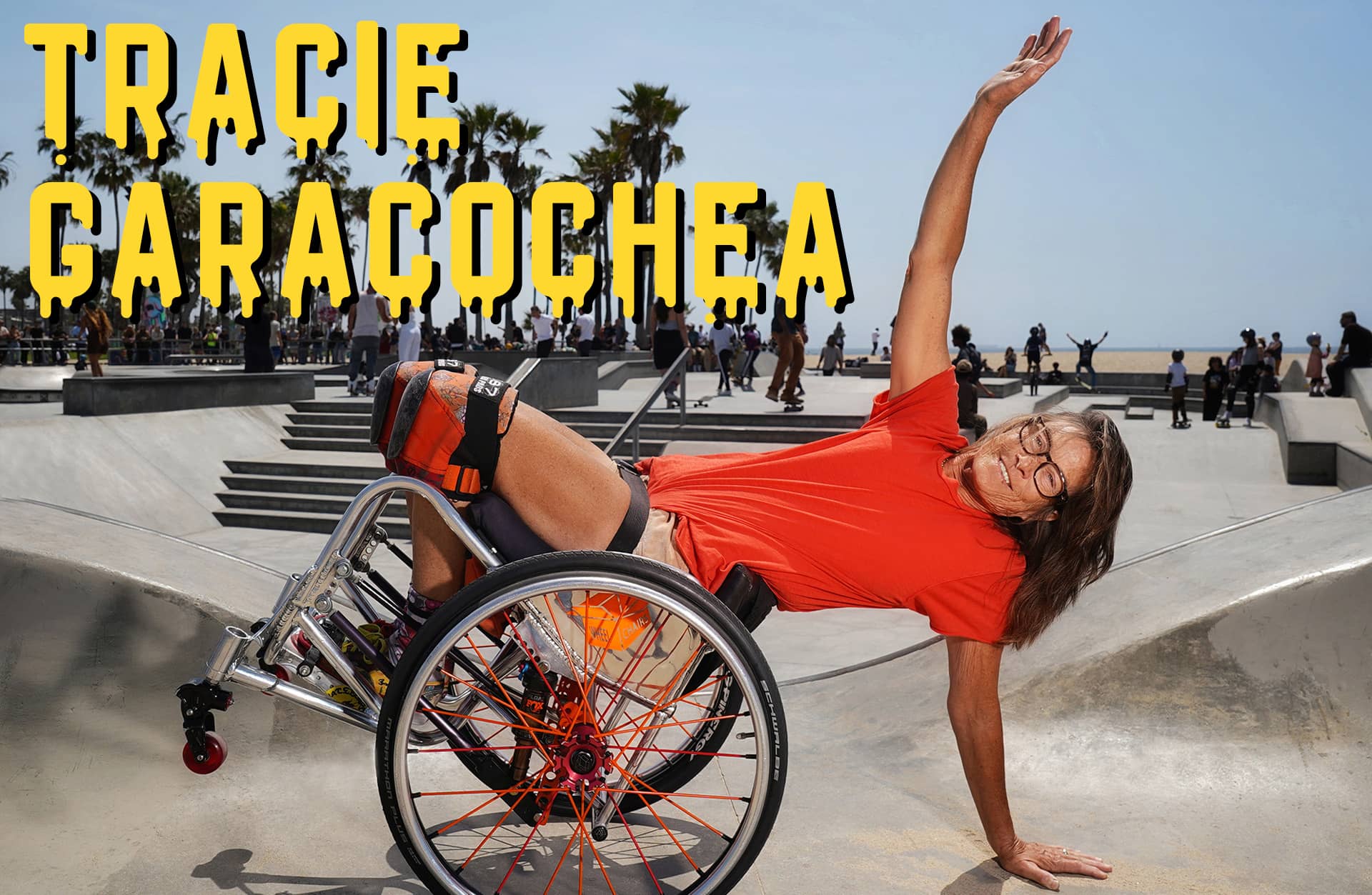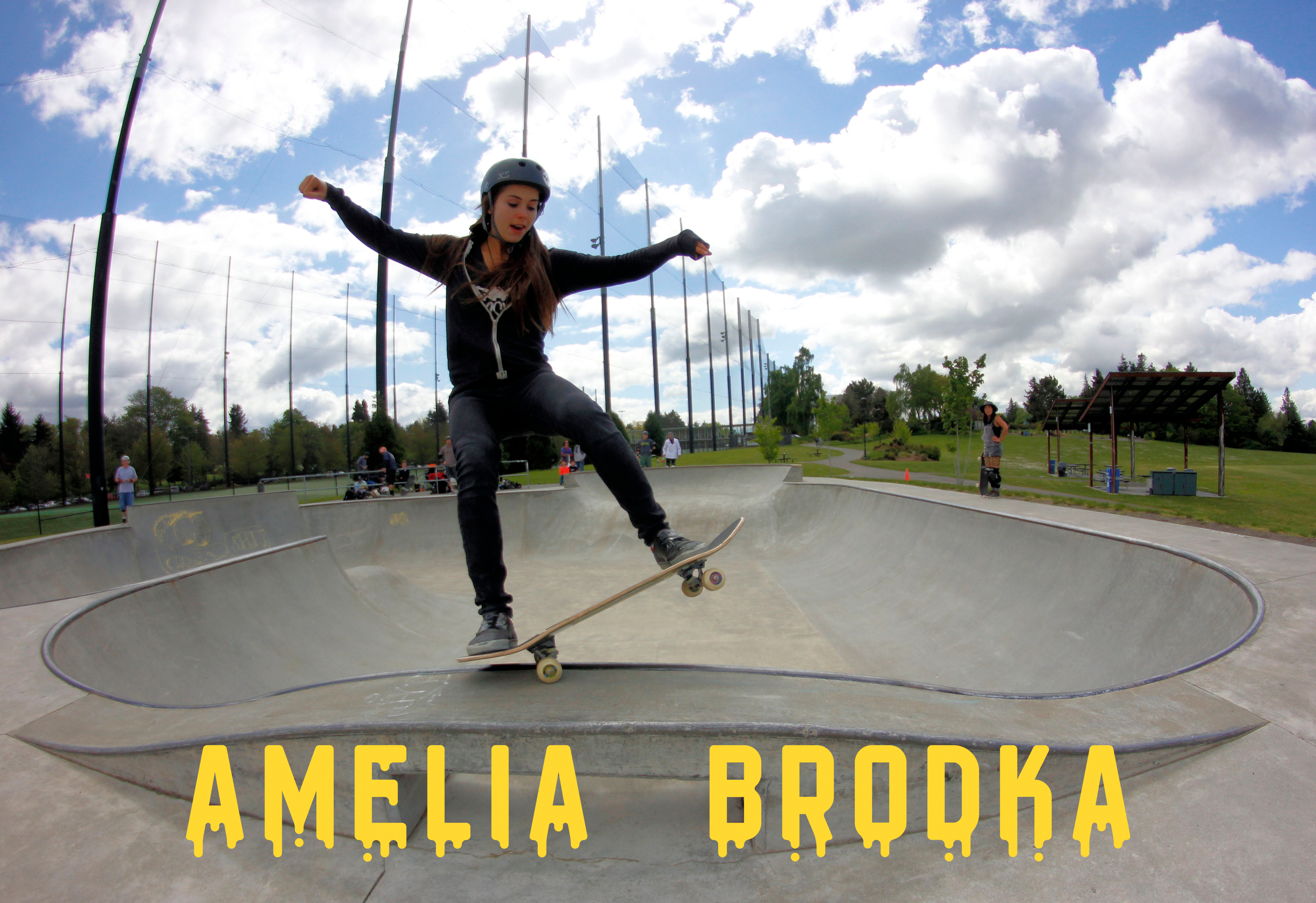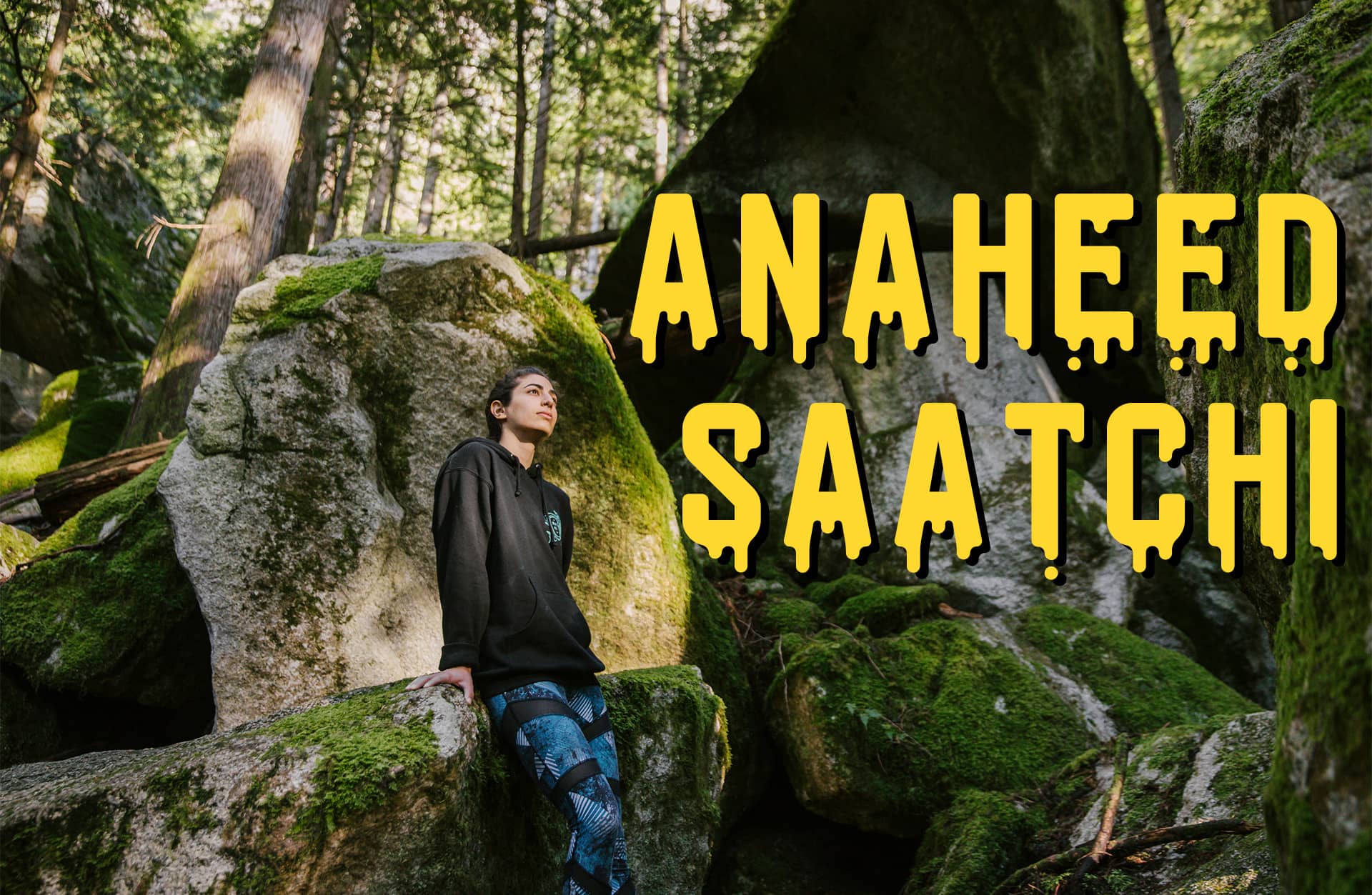SKATE // 01 JUNE 2022
TUTIFRUITI
“It cannot be an error to have tried.”
“You have time.”
“No feeling is final.”
These are just a few of the messages painted on the bottom of tutifruti’s fingerboard decks. Each tiny skateboard is hand pressed and decorated with messages of acceptance, healing, and growth.
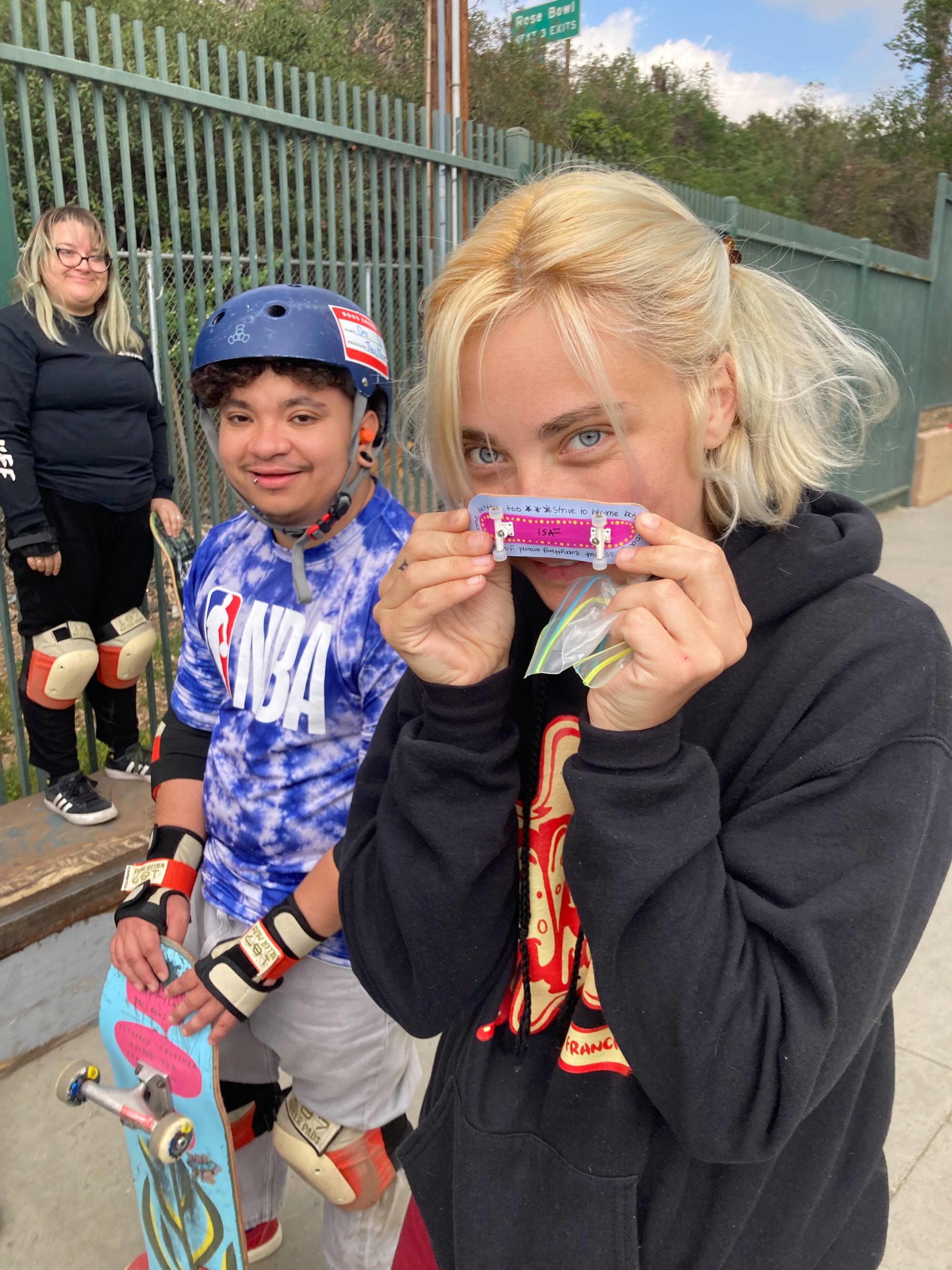
Founded in 2021 by Isabella Ostos and Romina Palmero, two queer Latin shredders based in South Florida, the project hopes to start a dialogue around mental health among minority skaters. Using the values of skateboarding as a tool for emotional processing, coupled with creating a space for skaters to be emotionally vulnerable, the duo strives to give others a helping hand on their healing journey.
The two skaters were introduced to each other by a mutual acquaintance while both attending Florida State University, they connected and started dating. The relationship continued for several years, even after Ostos moved to Chicago for graduate school. Then in 2020, as the pandemic swept across the globe, they split. “We kind of had a really not good [breakup], we didn’t talk for some time,” explained Palmero. “Or when we did talk, it was just really bad.”
Separated by states and circumstances, they continued down their own paths. By the summer of 2020, Ostos entered into another relationship. After dating for six months, Ostos found themself entangled in a web of abuse and suffocated by looming dread. “They were incredibly emotionally abusive and their parent was too,” said Ostos, explaining their mindset when they returned to Florida for the holidays. “I was just questioning everything because it wasn’t your normal ‘you end a relationship and [the breakup is] hard’. It came to the point that I was afraid to leave my home. At that point the abuse was so much that I felt like I was going to run into them in Chicago and I was going to lose my shit.”
After the holiday break passed, Ostos packed up their life in Chicago and moved back to Florida. Trying to find some peace, they put her life on hold, taking the time to process the last six months of their life in therapy. Even with the complete focus on themself, they still struggled, constantly being triggered and breaking down. “Then,” continued Ostos. “I showed up to Romina’s house and we started talking again and trying to amend our friendship at that point.”
“For clarity,” expanded Palmero. “Before I met Isa, I had also been in an abusive relationship. So when we had first started dating, I was in a really weird place where I was also getting triggered a lot. So when we were rebuilding our friendship last year, I could totally see where [the breakdowns were] coming from. I’ve been there. So I kind of could understand.”
“It was just so helpful,” said Ostos. “Because a lot of times, so many of the things that you get triggered [by] are so random and illogical and so small in a way that a person who doesn’t understand or hasn’t been through something like that, for them, it becomes, ‘oh, my God, why are you like this?’”
“But with Romina, I felt comfortable because she understood that it wasn’t about her. I was just stuck in how this person that I had dated and their parent had made me feel so terrible. So when I say, like, I stopped my whole life, I did. I came to Florida and I just retired.”
Spending her days skateboarding, practicing yoga, and going to therapy, Ostos gave themself the time and space to explore their emotions and process their trauma. They also began to read more. “They were reading insane amounts,” laughed Palmero.
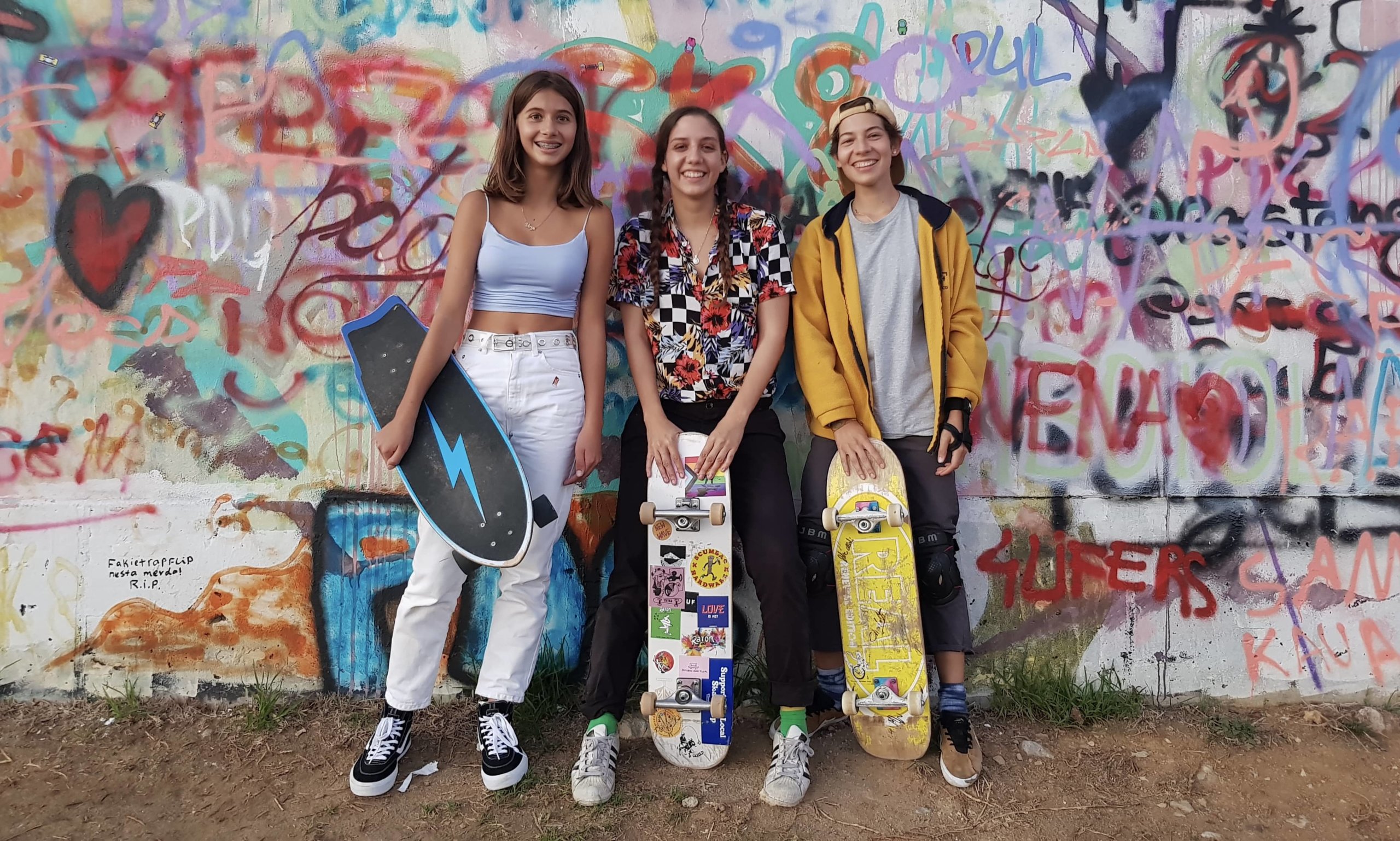
“I am the type of person who underlines things in what I read,” explained Ostos. “Then I just started writing all of these things down as positive affirmations, or some of them were not necessarily positive affirmations, but more like [grounding statements].”
Around this time, Ostos’ mother purchased a 3D printer for her business. Excited by the creative possibilities, Ostos began to scheme about what they could make. “I’m personally obsessed with dioramas and miniature things,” laughed Ostos. “I was like, we should make a Tech Deck.” After some trial and error, they perfected her process. Using the 3D printer to create a mold, Ostos would hand press the layered wood and veneer into boards over two days, and then, sourced from their months of collected affirmations, decorate the bottoms with positive messages. This process became a form of art therapy for Ostos, a way to physicalize their months of healing.
Entering the summer of 2021, borders were beginning to open up again and the world seemed to be crawling out of its pandemic hole. Ostos and Palmero had an existential crisis. “I was just kind of asking Romina, ‘my gosh, what are we going to do with our lives?’” laughed Ostos. “Romina for a long time had always wanted to go to Greece. For a really long time I wanted to go to Barcelona.” So the two left for their own separate trips. Rich in fingerboards, Ostos decided to bring them to Barcelona with the hope that since they’d helped them so much they could also help someone else.
The day she landed, Ostos explored Marbella skatepark. “There were so many people, and they were shredding so hard,” she smiled. “I went the next day, and I met a lot of women who were skating, and I was like, oh, my God, this is awesome. You don’t really get to see this unless it’s like a skate group meetup for women. I was super excited, and I went up to them and asked them if I could take pictures. That’s how it started.”
Inspired by the impact of the open conversations around mental health prompted by giving away their fingerboards at Marbella skatepark, Ostos quickly created a logo and started the tutifruti Instagram page. They wanted a place where they could document the different skaters they met on their travels alongside the fingerboards they gave away.
While Ostos laid the groundwork for the tutifruiti Instagram, Palmero realized that Greece was not where she wanted to be. “It was one of those things where I had never been to Greece and I had had this dream of what it would be like. Then I went and I was like, man, I do not fuck with this. It was such a big city and I just felt so alone. I wasn’t meeting the right people and I wasn’t really enjoying my time there.”
With both a half-brother and Ostos in Barcelona, Palmero decided to ditch Greece and try Barcelona. Though she’d helped Ostos take photos and create other media as Ostos produced the fingerboards in Florida, Palmero officially joined the growing project in Barcelona. As Ostos summarized, “We work well together, and we’re in Barcelona and it seemed like it would work, so that’s what we did.”
They traveled across Europe together for five months, capturing strangers’ stories on the tutifruti Instagram, hoping to show others that they weren’t alone in their struggles.. “It felt like it all just happened. It took its own legs. We didn’t necessarily plan for everything to be the way it was. One thing led to another, and things were falling into place,” explained Palmero. By simply engaging with other skaters at the parks they visited, people opened up to Ostos and Palmero.
Sharing their own struggles with mental health and trauma, people began to open up and let themselves be vulnerable with the duo. “I think trauma takes the trust that you have in the world away,” reflected Ostos. “I think, in my experience at least, I got to practice [as I went through] Europe, then Turkey, then Morocco, and now in the United States opening myself up to people.They reminded me that there are still people out there that are trying their best every day and they’re good and that they are receptive to what the human experience is, and they’re there to help you out.”
Eventually, when they were out of money, the pair returned to the States, determined to carry on the momentum they’d gained overseas. “[When] we got back, we just kept doing the same thing,” explained Palmero. “I feel like when we got back to the United States, by then we had a lot more structure and we kind of did exactly what we were doing [in Europe].”
Filled with concrete, metal rails, and a constant push for rawness, a skatepark is not the first place one would expect strangers to discuss their mental health. So why has tutifruti, across multiple states and multiple countries, found success? Palmero explained, “Skating in and of itself, not just skateboarding, but any sort of skating. It’s built around falling. It’s built around putting yourself in very vulnerable positions in public, in front of people.”
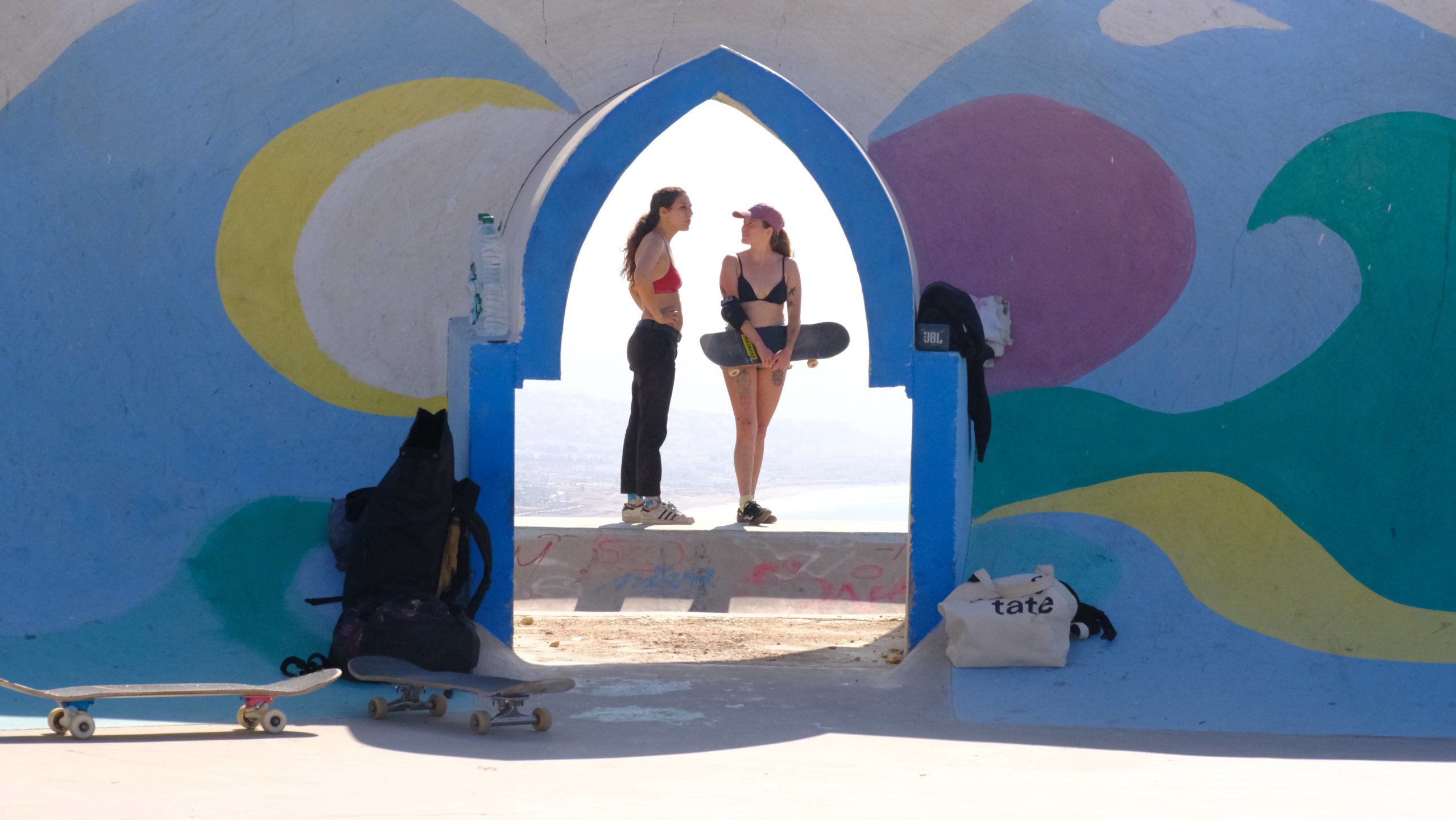
“It reflects so much of the mental health journey, in that people like to think that things like happiness come so easily. The reality is you have to work really hard at almost anything to be good at it. Skating happens to be one of those things where no matter how much you practice, you spend most of your time failing. Skating reframes what success looks like.”
Ostos expanded, “You’re doing the most ridiculous things and on wheels. It’s you mentally telling yourself to trust yourself, to trust your body, to allow yourself to just exist in that moment. Even though your brain is telling you all of these warning signs, which is kind of like what happens when you get triggered and your brain just goes on fire.”
“[Skateboarding] kind of rewires your brain in a way that it allows you to trust yourself again. When you trust yourself and you fall and you’re like, oh, my fucking God, that really hurt. You have the choice, right? I either get up and stop for good, or I get up and try it again, which [processing] trauma is so much of that. You constantly are failing, but you pick yourself up.”
These insights are supported not just by Ostos and Palmero’s personal experiences. Recent research in the field of neuroscience has shown a correlation between the areas of the brain that are active during skateboarding and trauma healing, specifically in children. Organizations such as Free Movement have seen great success in teaching refugee children to manage stress, fear, and how to regulate emotions through skateboarding. Findings like these become even more interesting when it’s taken into consideration that about 50% of adults in the United States will experience trauma at some point in their lives. That statistic is without factoring in the effects of the pandemic.
“Covid has caused a huge amount of grief and mourning for so many people, so many people lost someone,” said Palmero. “It’s one thing to lose a family member. They’ve also now lost the ability to have a funeral, to have this in-person grieving process, which is really important. I feel like we’re in a very critical time where a lot of people are willing to talk about mental health, not just because of all the grief, but also because of the isolation and how that has affected people’s mental health. ”
“We literally have ideas every day,” laughed Ostos as the pair went over their plans for the future. Currently, they are fundraising for their second tour of the United States through both donations and their second series of fingerboards. Film projects, studio space, and eventually traveling to every continent in the world, all wait to be checked off from the giant notes in their phones.
But no matter how long the list becomes, Palmero and Ostos never lose sight of their mission. “We do the project based specifically on marginalized communities, because there’s already kind of a conversation about how mental health and skating intersects for cis-men,” explained Palmero. “But I think there’s still a lack of this conversation about how it’s affecting women and LGBT people because we face unique challenges in mental health.”
“To be fair, it’s not like we even try to seek out anyone in particular. It just so happens that a lot of times we are meeting people of color and trans people because they just exist.”
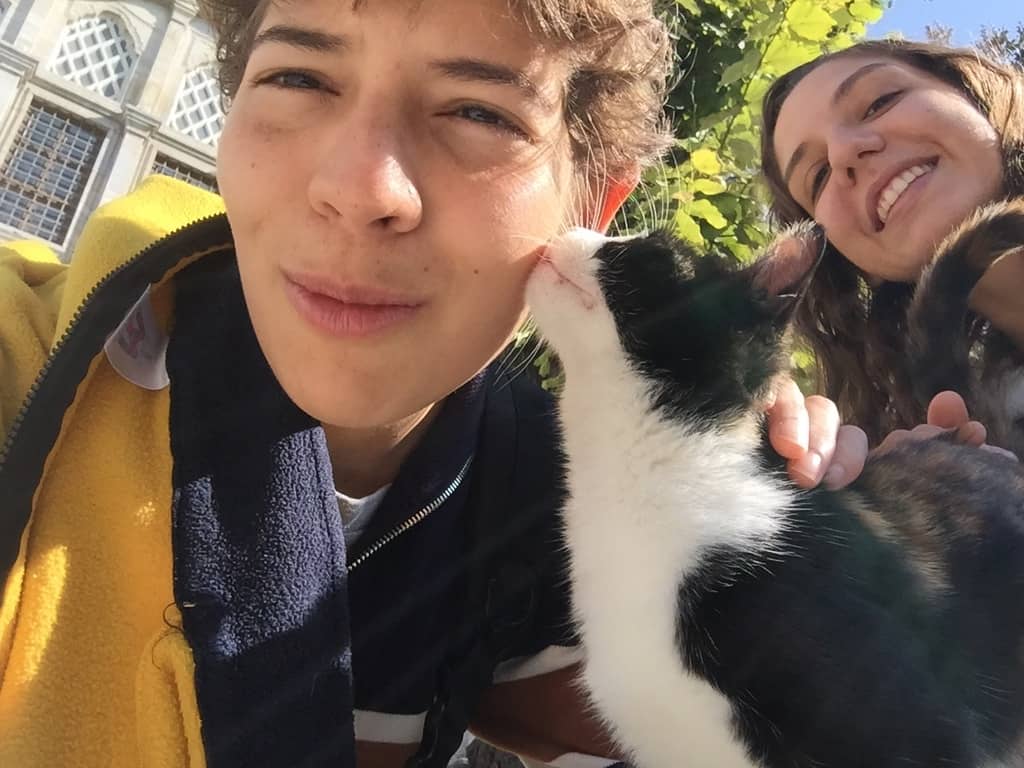
Reflecting on the journey tutifruti has brought them on so far, Ostos smiled, “What I think is interesting is that when we tell people about the project, they’re like, wow, you guys are like living the dream.”
“Yes. I feel like that. Are you kidding me? Everyday I look forward to doing something that literally I go to sleep and I’m like, I can’t wait to wake up so I can continue doing this. Right? The friendships, the connections that I’ve made have been like, wow, the world is so small but so full of amazing people, and it’s just wonderful.”


